What does the latest IPCC Report mean for rebels?
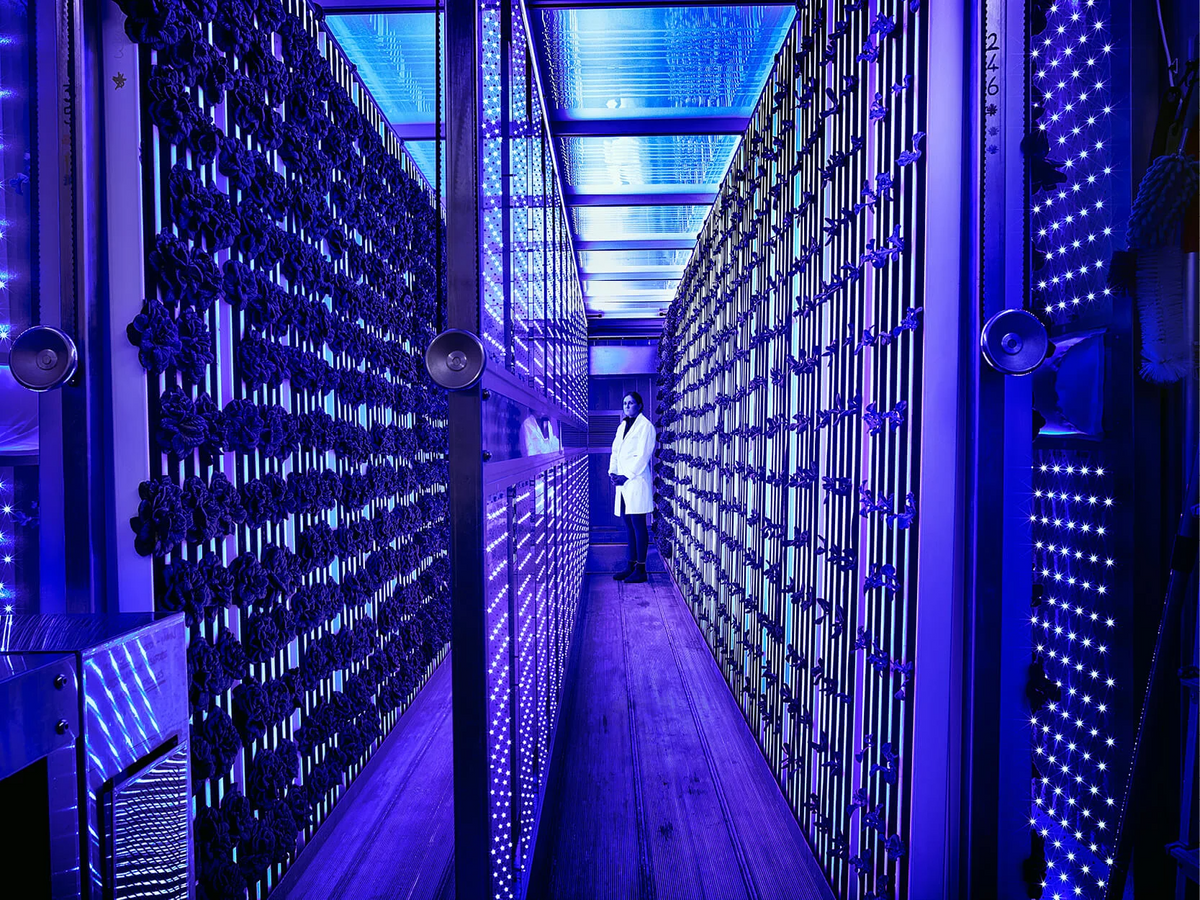
The 2023 report is the final update from the IPCC before the end of the decade and it highlights the urgent need for strong progress by 2030 to mitigate the worst of climate chaos. Given that its primary audience, Governments, are failing abysmally to act on that advice, I've summarised the report and its weaknesses to help bolster effective grassroots action 🌱
Challenge Political Interference into Science 🔬
One of the key elements activists need to challenge the IPCC report on is the political interference of stakeholder countries in its creation. The language used in the “Summary for Policymakers” has been massively weakened by changes to the language on fossil fuels and dietary change. After pressure from Saudi Arabia, the language on fossil fuels suggests a transition away from fossil fuels rather than phasing them out entirely. This is dangerous as it positions fossil fuels as part of the solution, whereas the science is clear that we need to stop using them entirely. The original report, leaked by Scientist Rebellion, suggested "plant-based diets" to reduce emissions but due to pressure from Brazil and Argentina, large beef exporting countries, this was changed to the ambiguous "balanced and healthy diets". Meat and dairy are then totally ignored in the final report despite them emitting 15% of total global emissions. These changes from the original reports show the scale of political intervention in the science and rise of meaningless political phrases. If we want meaningful reports we need to pressure the IPCC to ditch government influence and stick to the science.
Failure of the Media to Communicate the Report 🗞️
This is the biggest news that there has ever been and it should be headline news in every paper. And yet in Britain's second most circulated paper, the Daily Mail, it is crammed into the end of Page 19, after a large section on a parking argument. Its dismissal is maddening. The reason behind it? Newspapers rely on the revenue of adverts for high emissions lifestyles and are owned by billionaires that have huge stakes in fossil fuel companies. They won’t tell the truth about the severity of the crisis because it threatens their position in the status quo. We need to keep pushing the media to tell the truth and alert the public to this devastating bias.
Final Warning? 🌋
Is this language of a 'final warning' really breaking through? From what I can see, 30 years of repeated warnings have been ignored by Governments and even the messaging of “5 minutes to Midnight'' isn't working. Unfortunately, it can even feed into denialist narratives, which dismiss the warnings as just the same-old apocalyptic messages we've heard for the last 20 years. We need to change the story because the report's framing, which is just aimed at Governments, makes us seem like passive bystanders but of course, we should all be active in the process of addressing an emergency. Especially given that Governments have agreed to take action on climate change since 1992, but since then the situation has only gotten worse. The IPCC reports haven't worked because, at the end of the day, change isn't about information; it's about power and influence. We need a story that encourages all of us to be part of creating a new democratic power in society.
At the moment, the wealthy can use their power to shut down a new story. For example, Shell can spend money on legal services to set injunctions on their property and prohibit climate action by effectively empowering the law to put climate protesters in jail. This shows the power of wealth in weaponising the law against peaceful protesters. It also shows that the fossil fuel industries are starting to panic and investing in new ways of expressing their power rather than just the classic disinformation of the last 30 years. We need to challenge the comeback of disinformation - the Telegraph’s language on the IPCC as “Confected hysteria” is outright climate denialism. They are running scared of the power of social movements so they are doubling down on climate denialism to protect their social licence. We need to expose the corruption of the residual elite’s story and weave a new one, based on new forms of power such as Citizen’s Assemblies which remove the lobbying influence of big companies in favour of balanced citizen participation.
Aerosols ⚛️
A neglected part of the IPCC report is the effect of aerosols on the atmosphere. When we burn materials we create tiny particles of soot that actually cool the atmosphere. The current temperature of 1.3C above the industrial baseline is a result of both the warming of greenhouse gases and the cooling effect of aerosols. So there is a risk that if we stop burning quickly, then we could reverse the particle cooling effect and risk a rapid temperature rise. This doesn't mean we need to slow decarbonisation but we do need to be aware of this often neglected impact when we assess the current warming. Without the masking effect, we could be closer to 2C. Based on this risk, we need to be pushing for more ambitious climate action and highlighting this all too commonly neglected element of science in our messaging. If it could be that severe then we should act as if it is that severe.
Overshoot ☣️
The report worryingly focuses one of its 18 sections on overshooting, which is the idea that it is now okay to go over 1.5C because we can go back down again with carbon capture technology (which doesn't currently exist). This is a classic example of the report ignoring feedback loops, where increased heating can cause larger problems such as the melting of arctic ice, which can trigger even more warming. Dismissing the science of feedback loops and believing in fictional technology is simply magical thinking. There is so much resistance in Governments to the difficult decisions that need to be made now that they like to use this kind of fantasy scenario instead. This overshooting idea gives the report a legitimacy that it doesn't deserve. We need to fight against the idea that overshooting is an acceptable or viable pathway.
Intergenerational Equity 👩👩👧👧
These five pathways show the huge impacts of decisions now on future generations. It's viscerally clear from this graph that we don't all have the same stake in the climate crisis. When you see this, it's difficult to think of the number of 70-year-olds who are influencing our future when 16-year-olds can't. There isn't a mention of intergenerational equity in the report but this image makes the problem clear. We need to campaign for younger voting ages and increased youth participation in power to help remedy this imbalance.
Loss and Damage 🔧
The new language of loss and damage strengthens the case for climate justice. It develops a built-in mechanism for climate action that makes high-carbon, rich countries responsible for the damage caused in the most affected countries. We should be adopting this language in our movements and also pushing for national versions of climate justice, such as subsidies to help the poorest move away from cheap but heavily polluting vehicles.
Should the report include the word collapse? 🏚️
If it was being honest then yes it would but scientists like to talk about facts and predictions rather than the implications. You can't model human decisions, just as we can't model elections, and so in general social sciences are neglected from the report. Collapsology is a new wave of social science that doesn't yet feature.
Without a strengthening of policies, global warming of 3.2 degrees is projected by 2100.
We have no clue how dangerous a 3.2-degree world is - it could be too dangerous for organised human society. Our societies are so complex and interdependent that they could collapse under these threats. 3 degrees will massively affect people born today. This isn't theoretical. This is today's children.
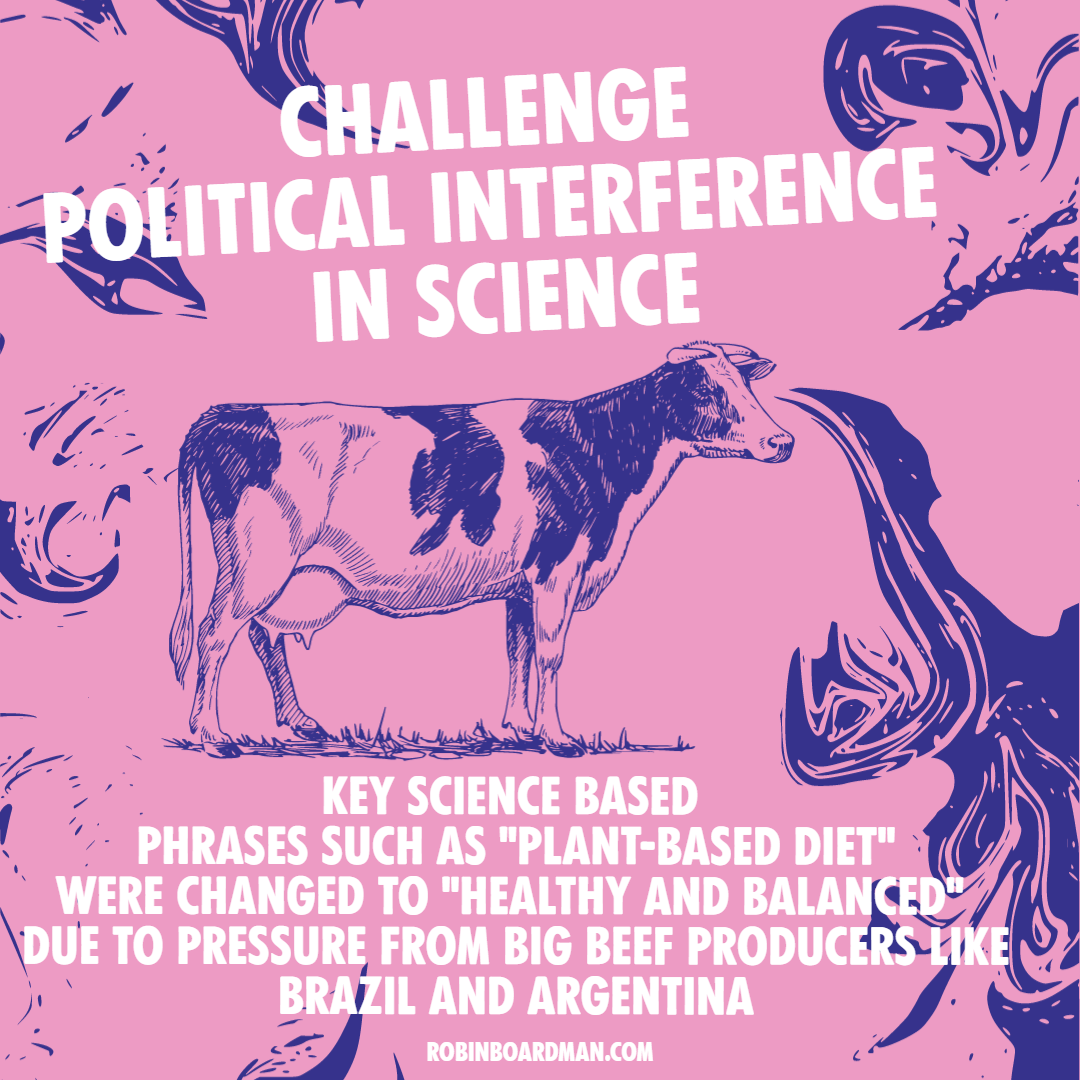
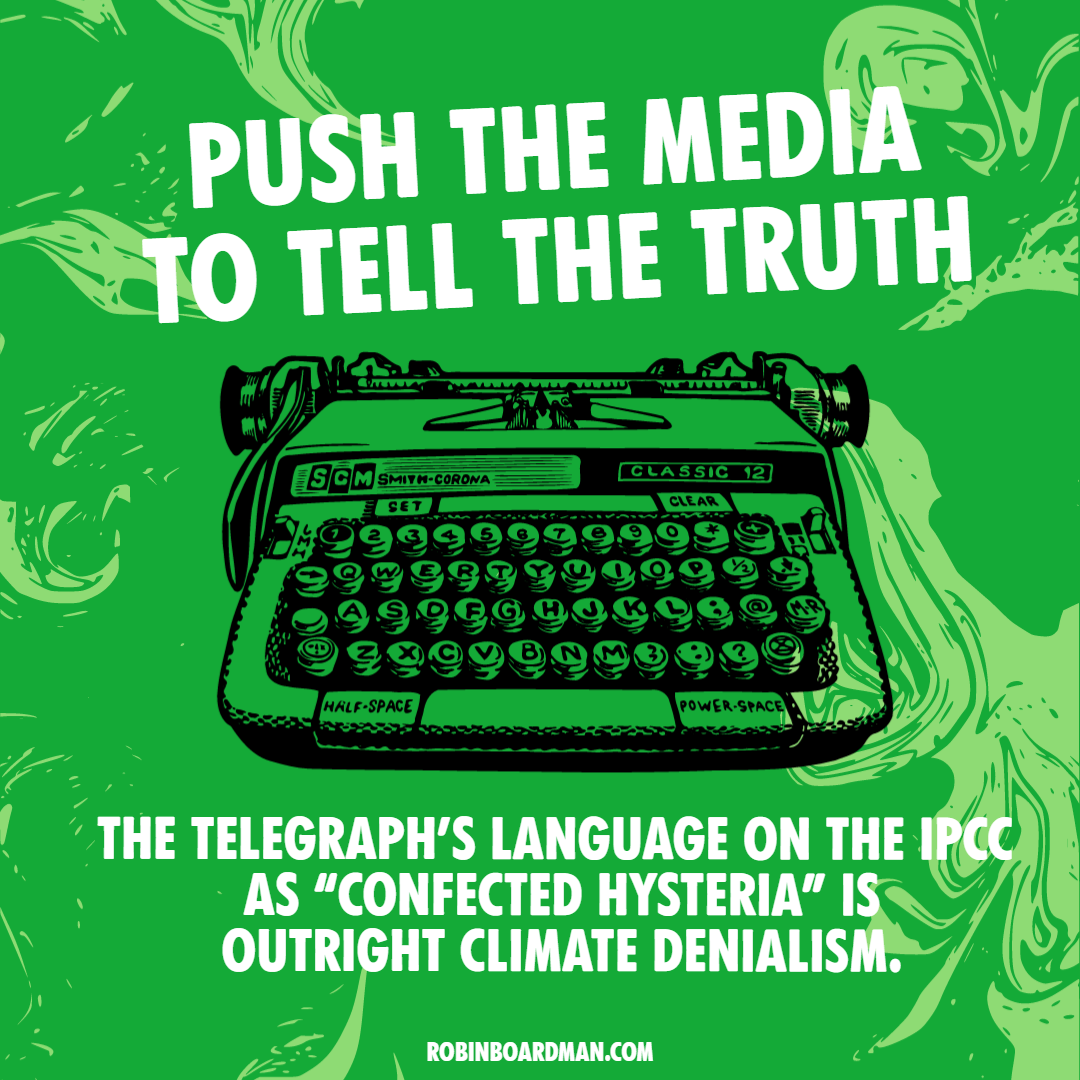
Climate Sensitivity 🥃
In 1965, Claude Louris discovered that by putting ice from the Arctic in his whisky, gas came out. Therefore he could measure what gases were in the atmosphere in the past by measuring gases emitted from deeper ice sheets. This kind of historic reporting, or Paleo data, is neglected in the report in favour of the number of current emissions. Paleo-data is very important for looking at climate sensitivity which measures for any given amount of emissions how much temperatures will rise. James Hansen published a paper that based on paleo-data, sensitivity could be a lot higher than the current IPCC models - even warning of the risks of 10 degrees warming. Again we must urge the public to adopt the precautionary principle - a caution in the face of new evidence which may prove disastrous for the future humankind.
Acting immediately is very important 🆘
A clear takeaway in the report is that protecting our climate will also lead to a reduction in poverty and improved global health. The faster we act the better we can protect these areas and minimise the worst outcomes of collapse or even human extinction. It's also cheaper to act as soon as possible too in the long run. These basic facts of the report can’t be stressed enough by our messaging - a win for health, economy and planet.
Emissions are still rising 📈
The report shows that 2019 emissions are 12% higher than in 2010 which points to an obvious conclusion that producing these reports isn't working to reduce emissions. Producing more information isn't tackling the power and influence that want to delay climate action. We need to challenge the antiquated narrative that information will create change. Movements need to point to more emotional and spiritual sources where people can find meaning and purpose in their lives by rebelling against the harm we face.
Emissions reduction 🌲
The biggest potential for emissions reduction are:
- Solar energy ☀️
- Not destroying ecological spaces 🐸
- New regenerative practices to protect our soil 🍂
Key Takeaways:
- Tree planting isn’t the only answer. As good as planting trees is, it doesn't address the main issue of emissions. Protecting existing trees is far more effective than planting a new one because it takes years for them to come into full carbon sequestering effect. The largest power station in the UK, Drax, is burning native forests in Canada for energy and it’s scandalous. We need to support people climbing up trees to protect what safeguards we already have. (Drax Scandal Documentary)
- Nuclear power has much less potential than solar and wind so the climate movement doesn’t internally need to get so reactive (🥁) in that debate.
- The report does cover some good news on the progress of climate action to reduce emissions. So it shows reductions are possible but that governments aren’t doing enough.
- The Paris Agreement pledges would still lead to 2.8C warming. All of those non-binding pledges are empty promises that even combined are still not strong enough. This figure gives us a key statistic to show that existing promises are failing and countries must go far beyond what they’ve committed to.
- The UK is a great example of not following its pledges. It set a 2050 net-zero law and yet the Government is building a new coal mine; issuing 100s of new oil and gas licences in the north sea; still building houses to bad energy standards and still expanding airports - all policies taking us in the wrong direction.
- With this in mind, we should be pointing to the fact that the report is too focused on emissions and not on what caused them. We should address problems at the root, not the stem. We need to weave a clear story that puts Big Oil and political corruption at the root of this failure.
Economics 💱
A point missing from the report is a growing resiliation that our economy is not fit to provide the necessary transition. Take habitat protection as an example. Trees are currently valueless in our society. They are only worth something if they're burnt or sold as short-term products. Therefore current economic models are incompatible with the protection of habitats necessary for emissions reduction. The report doesn't make this crucial connection. Many mainstream economists say that we don't need to stop growing economies because growth will be decoupled from emissions. However, according to the IPCC charts, we need rapid reductions for 1.5/2 degrees. Rapid declines are simply incompatible with green growth. We need either a steady state economy (no growth) or degrowth, which measures the elements of the economy we really need and the ones we should decrease. Ultimately our economy can't grow forever or even for very much longer. So we have a choice, either it contracts when we chaotically cross the planetary boundaries or we plan it out and work on it now. Pushing home this point on economics is vital to challenge the arguments in favour of continued growth.
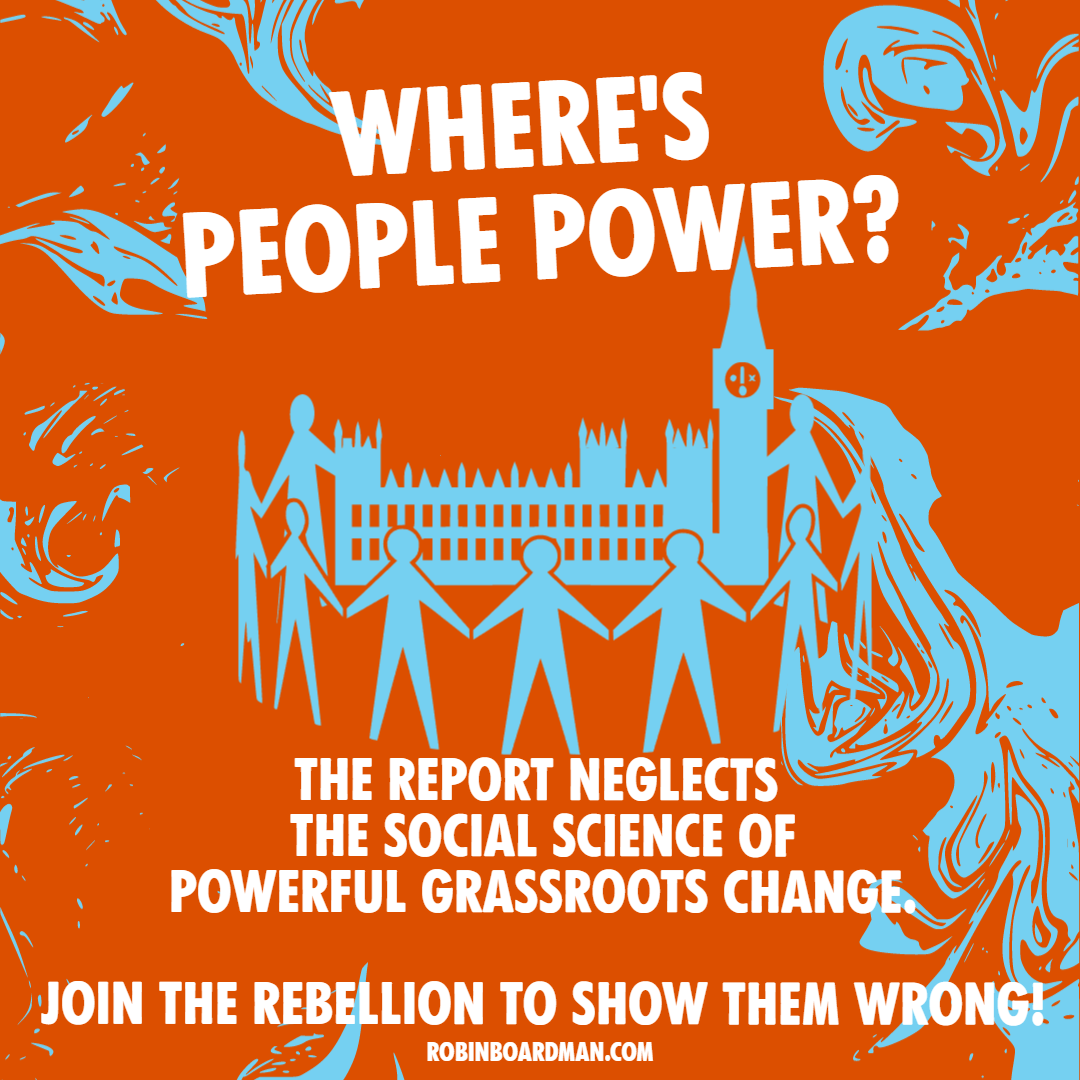
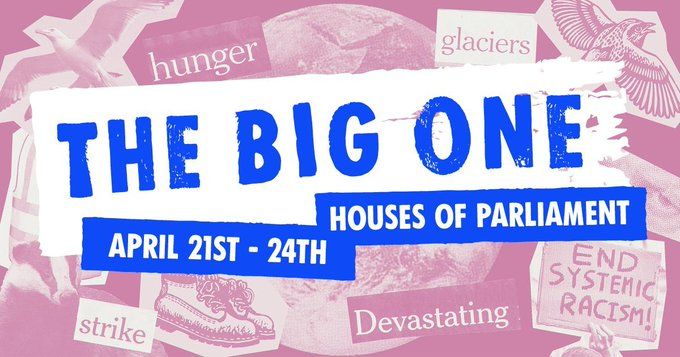
People Power? 🔍
The report focuses far too much on Governments. They have been proven ineffective for 30 years as emissions continue to rise and there is still far more finance flowing to new fossil fuels than to climate adaptation and energy. We need to think of new ways to create change. Simply giving Governments the climate information isn't enough when huge fossil fuel companies can go to them with buckets of cash. What we need is people power.
The report could highlight the effectiveness of community-organised change and the benefits of climate action for reducing climate anxiety. These could help to empower a wide population of readers rather than feed the doomism of its reporting. The primary reasons for climate anxiety are a sense of betrayal and feeling helpless. By encouraging grassroots climate responses, the report would open a real possibility for citizen participation and positive action. We need to build this possibility and show the world that Governments must now be forced to act.
Social science points to the idea of social tipping points, where change will happen when there are so many people pushing for it that it becomes inevitable. Every step of climate action, from the individual to global, is building momentum to reach these social tipping points. We need to highlight this concept and its sister idea of social contagion, where once enough people start acting, the rest will follow. We can think of it like dancing at a community hall - first, it's the weird ones who start to dance, then a few more, and a few more until there are so many people dancing that there's a tipping point where the even the "I don't dance" crew start to slowly groove because they don't want to be the odd ones out. We can inspire a social contagion by raising awareness of social tipping points and by bringing climate action to all elements of our life. From having a conversation with fellow shoppers about why you're buying plant-based burgers to discussing how social change happens with your family; it's all climate action. We tend to think just of the direct impact of our choices (i.e I just reduced my emissions by not driving) but it's not just about the CO2, it's about the power of what you've done to inspire other people.
This is what is frustrating about the IPCC report, it neglects the social science of how we actually achieve social change because the current information is not quantitative enough. We need to encourage more social scientists into the field of change-making so that they can clearly and factually point the way toward action. (Check out the Social Change Lab if you’re interested in more on this!)
Where do we go from here? 👣
As the report lacks crucial information for grassroots change, we need to create it ourselves. Showing the world the power of social tipping points and contagion, and manifesting our power to the best of our ability. It's our best opportunity to inspire others into action. We wouldn't usually think to resist our government if it wasn't for our terrible leaders but now we have been forced to. We can encourage others to join us in that. Most people now know of Extinction Rebellion or Just Stop Oil but mainly as the enemies or pariahs of mainstream media. With effective campaigning and community-based climate action, we can turn that around.
There will be challenges along the way. We are facing the massive power of the 1%. The way to challenge that power is with numbers. Massive numbers of people are involved in climate action at every level of society where we actively resist high carbon and habitat-destroying policies. This is a recent and crucial evolution in the climate movement. Due to the cost of living and energy crisis, we've seen a big wave of noncooperation in our society - strikes, not paying tax, direct action. Bigger noncooperation is building and we need to tie it all together. Binding all of these resistance movements together in a country like the UK, where climate knowledge is high, can challenge a corrupt government and create a ripe circumstance for change.
Want to help make the change? Join The Big One on 21-24 April in London.
This article is based on a conversation between Clare Farrell and Dr Charlie Gardner on Extinction Rebellion’s Youtube. You can check out the full discussion here.
I hope you found this summary helpful and that it helps to develop your activism. If you are interested in more like this, sign up to my newsletter and check out my recommended reading lists.